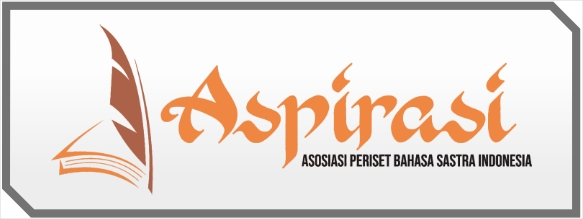Peran Guru IPS Dalam Membentuk Karakter Peduli Lingkungan Melalui Program Adiwiyata Di SMPN 1 Wlingi
DOI:
https://doi.org/10.55606/cendekia.v4i3.2955Keywords:
Role of Social Studies Teacher, Environmental Care Character, Adiwiyata ProgramAbstract
Teachers are a big influence in cultivating the success of students' insight and attitudes. The guidance given by teachers also needs to be given to the values of caring for the environment. The character of caring for the environment does not only come from intuition and talent, but also comes from habits and an educational process that cares about the environment. A concrete manifestation provided by the government in cultivating the character of caring for the environment through the Adiwiyata Program in schools. The predicate of Adiwiyata is Mandiri and is an example of a school to be coached by other schools, so to find out more the researcher wants to conduct research on the role of teachers in cultivating environmentally caring character through the Adiwiyata program. The aim of this research is to (1) find out the role of social studies teachers in forming character caring for the environment at SMPN 1 Wlingi (2) knowing the form of character that cares for the environment in students at SMPN 1 Wlingi. This research uses a qualitative approach and an intrinsic case study type of research. Data collection techniques through observation, interviews and documentation. Checking data validity through technical triangulation and confirmability. The data analysis technique for this research is the Miles and Huberman technique through data reduction, data presentation, drawing conclusions. The results of this research are 1) The Role of Social Studies Teachers in Forming Environmentally Caring Characters a) Curriculum that is integrated with the environment, in the form of lesson plans/teaching modules that are integrated with material about the environment b) Participatory activities, in the form of the habit of cleaning the environment every morning, with guidance teachers, and insight through activities from learning materials. 2) Forming environmentally caring character through the Adiwiyata Program at SMPN 1 Wlingi in the form of an independent attitude and sense of responsibility possessed by students which is proven by the many activities that support the Adiwiyata Program, such as picket activities every morning and after school, clean Fridays, competitions cleanliness of the class, several activities integrated with learning materials in the form of making vlogs. and in general, SMPN 1 Wlingi implements minimizing plastic waste through the attitude of students by bringing provisions or drink bottles from home.
References
Angga Swasdita, F. (2016). Implementasi program Adiwiyata di SMA N 2 Klaten (Skripsi, Universitas Negeri Yogyakarta). Retrieved from https://eprints.uny.ac.id/29450/
Daryanto, S., Darmiatun, S., & Bintoro. (2013). Implementasi pendidikan karakter di sekolah. Yogyakarta: Dava Media.
Dasrita, Y., Saam, Z., Amin, B., & Siregar, Y. I. (2015). Kesadaran lingkungan siswa sekolah Adiwiyata. Dinamika Lingkungan Indonesia, 2(1), 61-64. https://doi.org/10.31258/dli.2.1.p.61-64
Database Peraturan | JDIH BPK. (2024). UU No. 14 Tahun 2005. Retrieved April 21, 2024, from http://peraturan.bpk.go.id/Details/40266/uu-no-14-tahun-2005
Desfandi, M. (2015). Mewujudkan masyarakat berkarakter peduli lingkungan melalui program Adiwiyata. Sosio-Didaktika: Social Science Education Journal, 2(1), 31-37.
Mulyasa, E. (2007). Menjadi guru profesional: Menciptakan pembelajaran kreatif dan menyenangkan (Cet. 5). Bandung: PT Remaja Rosdakarya.
Fahruddin, M. (2019). Penegakan hukum lingkungan di Indonesia dalam perspektif Undang-Undang Nomor 32 Tahun 2009 tentang perlindungan dan pengelolaan lingkungan hidup. Veritas, 5(2), 81-98. https://doi.org/10.34005/veritas.v5i2.489
Fitri, A. Z. (2012). Pendidikan karakter berbasis nilai dan etika di sekolah. Yogyakarta: Ar-Ruzz Media. Retrieved from https://scholar.google.com/scholar?cluster=8330928680997274356&hl=en&oi=scholarr
Hidayatullah, F. (2017). Implementasi program Adiwiyata melalui kegiatan lingkungan berbasis partisipatif di SMP Negeri 1 Pandaan. Jurnal Pendidikan Ekonomi, 5(1). Retrieved from https://ejournal.unesa.ac.id
Moleong, L. J. (2018). Metodologi penelitian kualitatif. Bandung: PT Remaja Rosdakarya.
Muhaimin. (2015). Membangun kecerdasan ekologis. CV Alfabeta. Retrieved from //lib.unpak.ac.id%2Findex.php%3Fp%3Dshow_detail%26id%3D2423
Yona, S. (2014). Penyusunan studi kasus. Jurnal Keperawatan Indonesia, 10(2), 76-80. https://doi.org/10.7454/jki.v10i2.177
Downloads
Published
How to Cite
Issue
Section
License
Copyright (c) 2024 CENDEKIA: Jurnal Ilmu Sosial, Bahasa dan Pendidikan

This work is licensed under a Creative Commons Attribution-ShareAlike 4.0 International License.






















